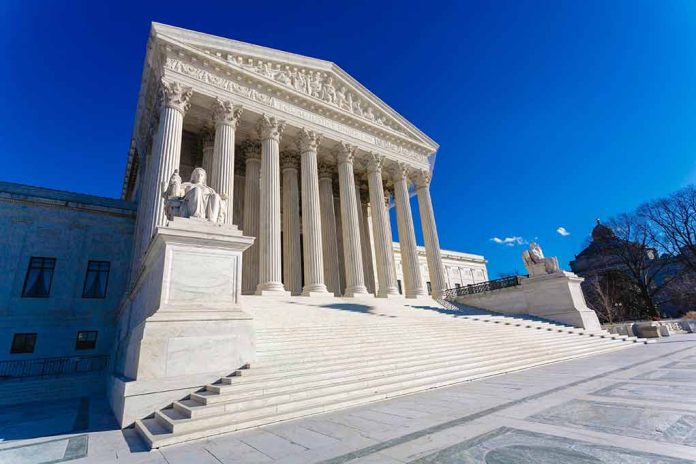
(BrightPress.org) – The United States Supreme Court ruled to uphold the funding structure of the Consumer Financial Protection Bureau (CFPB) on Thursday, May 16th.
The agency was designed by Senator Elizabeth Warren (D-MA) after the Great Recession of 2008 to protect consumers from financial extortion and was created by Congress in 2010. The agency acts as a watchdog regulating mortgage loans, car loans, payday loans, and other areas of consumer finance.
How the agency receives its funding is at the core of the dispute. In 2017, two trade groups representing payday lenders began the legal battle claiming the bureau’s funding structure violated the Constitution’s Appropriations Clause. The CFPB receives an annual amount directly from the Federal Reserve instead of going through the annual Congress appropriations process. A federal district court originally sided with the CFPB. An appeals court in Louisiana reversed the decision and claimed the agency’s funds were “drawn through the agency’s unconstitutional funding scheme.” The Biden administration appealed this decision in 2022 and warned that other agencies would be put at risk if the CFPB’s funding structure were struck down.
The Supreme Court, in a 7-2 vote decided the agency’s funding structure does not violate the Constitution. Justice Clarence Thomas wrote that the statute that provides funding for the CFPB is similar to the statute that has provided funding for the Post Office and Customs Service since the late 1700s. Justice Elena Kagan said the agency’s funding structure would have “fit right in” in the 1800’s. President Joe Biden called the decision an “unmistakable win for American consumers.”
Republicans have opposed the CFPB from the start.
Justices Samuel Alito and Neil Gorsuch dissented. Alito said the ruling allows the CFPB to “bankroll its own agenda without any congressional control or oversight.”
CNN Supreme Court analyst Steve Vladeck said the ruling is yet another confirmation by the Supreme Court that the U.S. 5th Circuit of Appeals in New Orleans is “too far to the right” for the Supreme Court.
Copyright 2024, BrightPress.org
















